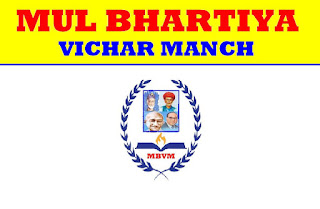Native People's Party
Rascal Panditwadi Congress keeps quite when any innocent Muslim get hanged :
Panditwadi Congress did not open it's mouth when Yakub Memon was getting hanged . Perhaps they had Kela in their mouth . But this not new for Panditwadi Congress . From the begging they coined CIA for every wrong that Videshi Brahmin organizations like RSS etc made to protect them . Then they shifted calling China and Pakistan responsible for every bomb blast ,disturbance made by Videshi Brahmins and labellings as Maowadi to Native people who made any just demand . During eighties they invented new theory apart from blaming Pakistan , blame Bangadeshi particularly Buddhist Chakams rounding them as criminals . Then they felt all the time they can not blame these Muslim populated countries so they started adding local Native poor Muslims like Memon , Ansari etc so that young boys can be picked up from UP , Bihar , Kerala , Maharashtra and put in jail for long as suspect holding responsible for every Brahmin made mischief so that they can claim they are some thing to end terrorism etc.
Even not that Brahminwadis and Panditwadis have made arrangement to blame Muslims for Mahatma Gandhi murder arranging Videshi Brahmin Nathuram Godse's sunta so that when caught he can be presented as Muslim murderer of Gandhiji . Thanks to Sardar Patel and Dr Ambedkar both were alert and Panditwadi , Brahminwadi , Manuwadi failed in their cunning design .
Since then and from that time every Brahminwadi , Panditwadi , Manuwadi forces in power have been blaming and claiming Pakistan and Indian Muslim hand in every mischief carried out by Videshi Brahmin organization .
Yakub Memon in his dieing statement he is innocent , not involved in Mumbai Bomb blast. He told Tiger Memon and Dawood also have no hand in this gruesome sin . Dawood wanted to come back and prove he is innocent so was Tiger . It is told by Jethmalani . Then who carried these Bomb Blasts ? Need fresh Inquiry by Judiciary .
Babari Masjid was demolished then Godhra train burning incident took place then Gujarat riots and then Mumbai Bomb blasts . Recently Justice Kolse Patil said that the bullet which killed Karkare was not from Kasab's gun . Then who killed Karkare ? Every thing is Golmal . One can understand Brahminwadis , Pandits and Manuwadis are hands in gloves that is why congress never raised voice for innocent Muslim killing and inducting in fabricated cases . We therefore call Congress as Rascal Congress , do not shed now crocodile tears after killing Yakub .
Nv. D.D.Raut , President , NPP
Our Message to Nation : Janeu Chhodo , Bharat Jodo
Rascal Panditwadi Congress keeps quite when any innocent Muslim get hanged :
Panditwadi Congress did not open it's mouth when Yakub Memon was getting hanged . Perhaps they had Kela in their mouth . But this not new for Panditwadi Congress . From the begging they coined CIA for every wrong that Videshi Brahmin organizations like RSS etc made to protect them . Then they shifted calling China and Pakistan responsible for every bomb blast ,disturbance made by Videshi Brahmins and labellings as Maowadi to Native people who made any just demand . During eighties they invented new theory apart from blaming Pakistan , blame Bangadeshi particularly Buddhist Chakams rounding them as criminals . Then they felt all the time they can not blame these Muslim populated countries so they started adding local Native poor Muslims like Memon , Ansari etc so that young boys can be picked up from UP , Bihar , Kerala , Maharashtra and put in jail for long as suspect holding responsible for every Brahmin made mischief so that they can claim they are some thing to end terrorism etc.
Even not that Brahminwadis and Panditwadis have made arrangement to blame Muslims for Mahatma Gandhi murder arranging Videshi Brahmin Nathuram Godse's sunta so that when caught he can be presented as Muslim murderer of Gandhiji . Thanks to Sardar Patel and Dr Ambedkar both were alert and Panditwadi , Brahminwadi , Manuwadi failed in their cunning design .
Since then and from that time every Brahminwadi , Panditwadi , Manuwadi forces in power have been blaming and claiming Pakistan and Indian Muslim hand in every mischief carried out by Videshi Brahmin organization .
Yakub Memon in his dieing statement he is innocent , not involved in Mumbai Bomb blast. He told Tiger Memon and Dawood also have no hand in this gruesome sin . Dawood wanted to come back and prove he is innocent so was Tiger . It is told by Jethmalani . Then who carried these Bomb Blasts ? Need fresh Inquiry by Judiciary .
Babari Masjid was demolished then Godhra train burning incident took place then Gujarat riots and then Mumbai Bomb blasts . Recently Justice Kolse Patil said that the bullet which killed Karkare was not from Kasab's gun . Then who killed Karkare ? Every thing is Golmal . One can understand Brahminwadis , Pandits and Manuwadis are hands in gloves that is why congress never raised voice for innocent Muslim killing and inducting in fabricated cases . We therefore call Congress as Rascal Congress , do not shed now crocodile tears after killing Yakub .
Nv. D.D.Raut , President , NPP
Our Message to Nation : Janeu Chhodo , Bharat Jodo







